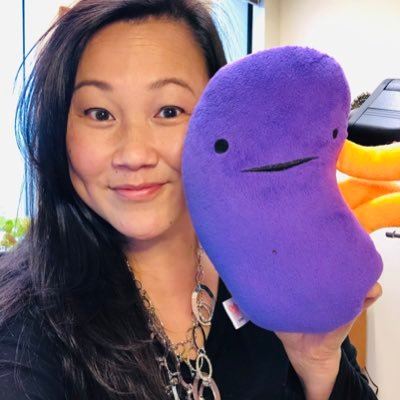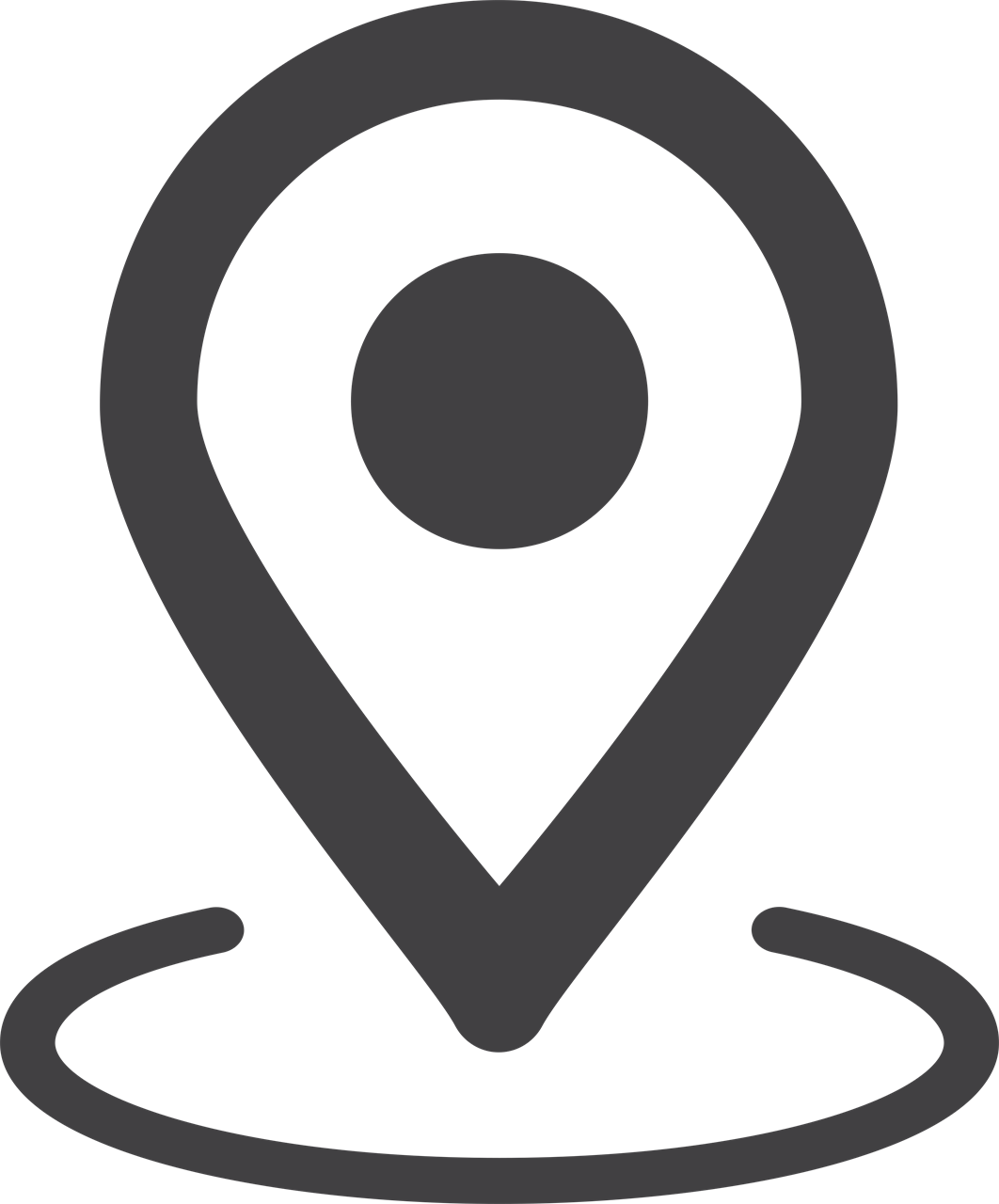Dear RPS members,
 In 2022, the RPS would like to focus on embracing diversity, equity and inclusion; and on broadening our international network. One way to achieve this goal is to celebrate a semi-monthly calendar of observances and appreciations with 10-question interviews highlighting our diverse pool of members. As May is Asian American, Native Hawaiian and Pacific Islander Heritage Month (https://fapac.org/AAPI-Resources), our May interview is with Dr. Jean Hou, current RPS financial committee member and current communications and social media committee member, and Associate Professor of Pathology and Laboratory Medicine at Cedars Sinai Medical Center. Please find the interview below.
In 2022, the RPS would like to focus on embracing diversity, equity and inclusion; and on broadening our international network. One way to achieve this goal is to celebrate a semi-monthly calendar of observances and appreciations with 10-question interviews highlighting our diverse pool of members. As May is Asian American, Native Hawaiian and Pacific Islander Heritage Month (https://fapac.org/AAPI-Resources), our May interview is with Dr. Jean Hou, current RPS financial committee member and current communications and social media committee member, and Associate Professor of Pathology and Laboratory Medicine at Cedars Sinai Medical Center. Please find the interview below.
1. What is your name, where were you born, where do you work?
Jean Hou
Born: Garden Grove, California
Work: Cedars Sinai Medical Center
2. What is your number one topic of interest in nephropathology?
My research project during fellowship was developing immunofluorescence criteria for diagnosing C3 glomerulopathy, but since then I have developed quite the variety of interests in areas such as paraprotein mediated kidney diseases and pediatric renal pathology, among many others… I don’t think I’ve been doing this long enough yet to have really narrowed down my interests to one particular topic. On most days I still feel like a kid in a candy store, and I feel genuinely guilty that they actually pay me to do this on a daily basis.
3. What is the thing you like most about your job?
The case variety certainly keeps me on my toes, and I love the fact that I can have a day that includes urgent transplant pathology, kiddos with perplexing GN’s, and kidneys on fire with vasculitis, peppered with unremitting diabetic nephropathy… it’s NEVER a boring day. I also really appreciate the intellectual stimulation provided by the variety of modalities (LM, IF, and EM) we employ to examine each kidney biopsy, not to mention the special stains that are ever-increasing in number and complexity. And above all, I truly enjoy the conversations that I have with our clinicians, and it is really incredibly rewarding to feel their genuine enthusiasm and appreciation for what we do. It’s a win-win situation.
4. What is the most challenging aspect of your job?
The most challenging aspect for me has always been trying to master the art of synthesizing and distilling all of the information that we have gathered, and translating that into an accurate and ACTIONABLE diagnosis and comment. That word, actionable, is important to me. I always tell our trainees and nephrologists that my job was never to hand them a 50 page biopsy report full of unnecessary information that will make their eyes cross in confusion. We (all pathologists) went to medical school too, and I feel like some of us do not have, or maybe shy away from, the opportunity to flex our clinical muscles and really engage the clinicians in those difficult discussions. Actionable, to me, means using my own clinical judgment and pathologic expertise to provide our clinicians with concise information that will not only diagnose the disease, but actually guide management and maybe even help predict outcome. This can only happen if we are open and honest with the clinicians, even if that means being wrong sometimes.
5. What did you want to become when you were a child?
It’s funny… I came across a workbook that I filled out when I was 6 years old and the question was “what do you want to be when you grow up?”. My answer was “princess” or “doctor”. I achieved the second, and I am sure that many of my family and friends have candid opinions on the former.
6. What would be your wish for the future - in general or in relation to your work?
I hope that time will demystify what we do. I’m always surprised to hear how wary some non-medical renal pathologists are of examining the renal parenchyma surrounding their tumor specimens. It is for this reason that I really enjoy working with the Residents on the autopsy service who routinely bring over kidney slides for consultation. I try to approach each case in a very systematic manner and give them the tools (whether they want them or not!) to be able to do their own evaluations someday. I want them to feel empowered, not intimidated. I tell them there is no magic involved in Renal Pathology; I have two eyes and a brain just like almost everyone else.
7. Any special interests apart from Nephropathology?
When I first got to Cedars, I was shocked and terrified that they were going to let me touch the electron microscopes unsupervised. I think we (Cedars) might be in the minority of programs where we scope all of our own cases. But once I got the hang of it, I never looked back! I really became obsessed with ultrastructure, and began exploring and trying to advocate for its uses outside of medical renal pathology (I know, shocked gasp). I have had the opportunity to collaborate with investigators at Cedars, exploring mitochondrial changes in animal models of pancreatitis, cardiac ischemia, hepatitis, and soon, neurogenesis! With all the time I’m spending down in the dungeon (EM lab) I am beginning to think that I’m going to need to start taking vitamin D supplements.
8. How do you think Renal Pathology will look like in 10 years’ time?
What do I think renal pathology will look like in 10 years? I think it’s inevitable that renal pathology will need to adapt (at least in part) to digital pathology. If I’m being completely honest, I far prefer glass slides and my own two eyes for interpretation, particularly with those subtle changes in hue and texture that can be highlighted by our different stains. But I also recognize that as the technology improves, there may be some real benefits to scanned slides and utilization of AI. I think this has potential to help centers in the US as well as in other countries who may not have a medical renal pathologist but require assistance with simple consultations, such as autopsy kidney, medical renal evaluation from tumor nephrectomies, or pre-implantation frozen section evaluation from donor allografts which are often read by non-medial renal pathologists in the middle of the night.
What do I think renal PATHOLOGISTS will look like in 10 years? I’m so excited by the increasing diversity in our field, and a growing interest among young trainees! In 10 years, my hope is that the body of renal pathologists will reflect the increasing diversity of the general population.
9. Who would you consider to be your mentor in renal pathology or pathology in general?
I have two sets of mentors who have been invaluable at different parts of my education and career. Obviously, the All-Star team at Columbia University Medical Center where I did my Renal Pathology fellowship (Vivette D'Agati, Glen Markowitz, Barry Stokes, and Leal Herlitz) were crucial and unwaveringly patient with me during that formative stage where I was just learning how to BECOME a Renal Pathologist. And then there is my second family here at Cedars (Cynthia Nast, Mark Haas, Mercury Lin, and Michifumi Yamashita) who really taught me how to BE a Renal Pathologist, and hopefully a good one. There was such a steep learning curve during the first years of being an Attending, and in all honesty the learning just never stops. I am forever grateful that they took a chance on me, and it really has been an honor to work beside and continue to learn from them on a daily basis.
10. What is your favorite non-work related activity or way to spend your time?
Like all pathologists, I love food. When I'm not at work or in front of my computer, you can usually find me in the kitchen cooking massive meals, because I have never quite learned the art of scaling down a recipe. I have fed my friends, families, and people at work for years now, and have yet to hear a complaint. I had actually considered starting a catering company way back when, but obviously had to give up that pipe dream when I was accepted to medical school. Deep down, I still believe I am a frustrated chef.
Bonus Question: Have you experienced any challenges or is there anything you would like the RPS to know about navigating the field of academic medicine (or non-work related life) as an Asian American? Are there specific experiences that you would like to share?
I think that the more memorable challenges in my WORK-related life have had more to do with my being female than Asian American. I skipped a grade early in school and as a result have always been significantly younger than my peers, and I've also been told that I appear (and act!) "younger than her stated age". Fast forward to my years post-college, when I took a 10 year hiatus working at the NIH where I eventually became head of a small diagnostic unit within the lab. It was an eye-opener when I began travelling to meetings and collaborating with other scientists, realizing that many senior investigators were already searching past me and asking, "So where is Jean Hou? I thought HE would be here today…". I had to learn very quickly how to navigate these awkward situations, often relying on humor for deflection. I used to be painfully and excruciatingly shy, and I credit these formative years for really developing confidence and a voice that demanded to be taken seriously in my role as a researcher and collaborator.
With regards to my non-work related life, I would have to have been comatose or living under a rock, not to have felt the reverberations of the anti-Asian sentiment that emerged during the pandemic. I realize that the nature of my job and my geographic location sheltered me somewhat from the eruptions during this time, but I felt the deep, rumbling aftershocks. I was fortunate enough to have escaped direct confrontation in daily life and at work, but of course I have friends and family who have not been as fortunate, including colleagues from other medical specialties. I have nothing but respect and admiration for those who sincerely want to continue performing their duties without fear, regardless of race.

 In 2022, the RPS would like to focus on embracing diversity, equity and inclusion; and on broadening our international network. One way to achieve this goal is to celebrate a semi-monthly calendar of observances and appreciations with 10-question interviews highlighting our diverse pool of members. As May is Asian American, Native Hawaiian and Pacific Islander Heritage Month (
In 2022, the RPS would like to focus on embracing diversity, equity and inclusion; and on broadening our international network. One way to achieve this goal is to celebrate a semi-monthly calendar of observances and appreciations with 10-question interviews highlighting our diverse pool of members. As May is Asian American, Native Hawaiian and Pacific Islander Heritage Month (


